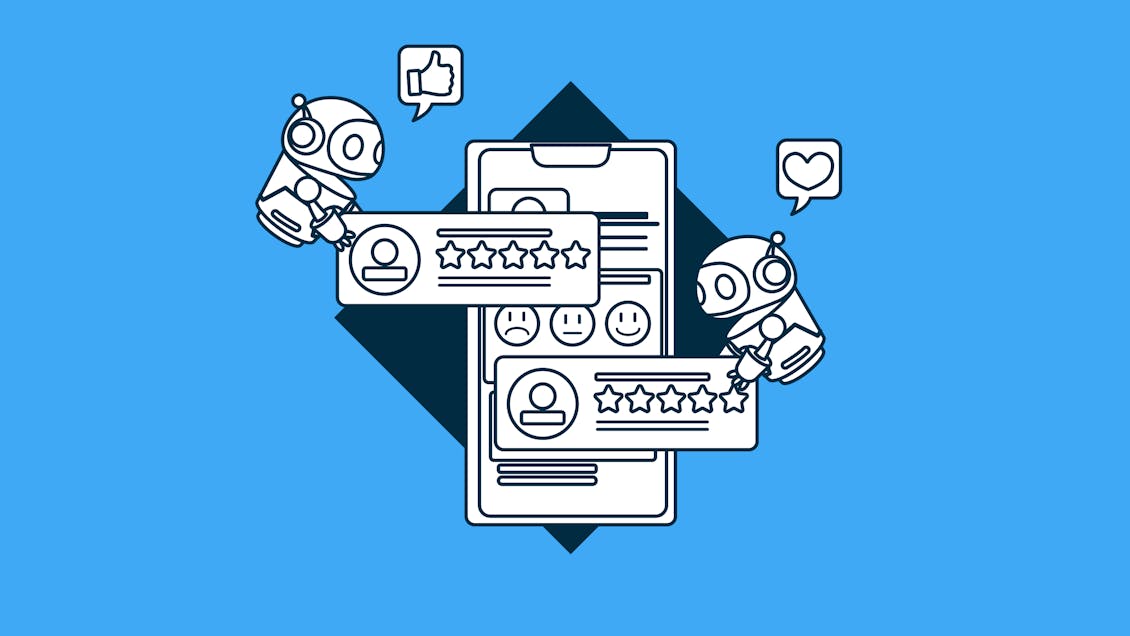How AI can make digital customer experiences more human

Artificial intelligence can enhance customer relationships in ways humans couldn't do alone
As AI moves from hype to reality, the financial services industry can apply the technology to deliver a more human experience.
The idea of “humanizing” anything digital can sound confusing, especially in an age where business success is dictated by our advancements in tech. How can enterprise leaders make a digital experience a more human one, especially now that so many of us depend on algorithms, data, and automated software?
To humanize the customer experience is simply to personalize it — to acknowledge that our customers and clients can think for themselves, and don’t subscribe to the blanket marketing tactics of the past. Not only should we be able to address consumers’ current needs, but we must also be able to anticipate their future ones as well. We can do just that with the help of AI.
AI is now embedded in an overwhelming amount of our workplace tools, from audio transcription to content creation, just to name a few. We’ve also seen a significant increase in the use of AI in marketing and customer support. Reports show that by 2025, 95% of all customer interactions will be AI-powered.
For the financial services industry, there are added risks and barriers to fully rolling out AI, as the technology is still not reliably accurate and free of bias. Human professionals are still needed to provide oversight, and data protection guidance is evolving alongside the technology.
When implemented correctly, AI can create a more personalized, humanized customer experience in ways we could never do alone. Here are a few examples:
Improved personalization
Your customers want to feel valued and heard. Old segmentation tricks were a step in the right direction, but they don’t cater to your customers' individual needs. Data collection has become part and parcel of all digital activities, but with the proliferation of data we need better tools in place to analyze and create actionable insights.
AI-powered customer engagement platforms take segmentation one step further by listening to and following individual customer journeys and forming personalized recommendations based on online behavior. Those behaviors and deep segmentation can also be used to create hyper-personal messaging based on accurate and timely data insights.
First Horizon Bank uses AI to track visitor activity on its website, tailoring future messaging based on a user’s interests. Their bankers also use these insights to make personalized recommendations and support the human-to-human relationship smaller banks are known for.
An empowered, more independent user experience
AI can also be integrated into your digital experiences in several ways to create a more impactful and efficient browsing process. Prospects can get the answers they need faster.
Chatbots have become particularly popular for their ability to engage and encourage users. They have many use cases, from e-commerce to help desk guidance. With the advent of more powerful AI such as GPT-4, these tools can now access up-to-date information.

Neobroker Public recently launched Alpha, an AI-powered chatbot that answers questions about the stock market and trading, crypto, the historical performance of assets, and more, to help users make decisions about their portfolios. The tool uses natural language processing to offer broad advice. While the tool cannot know users’ personal circumstances or offer recommendations, it represents a paradigm shift in making investment information more accessible.
Sentiment analysis
Customer feedback is everywhere, from social media to reviews and surveys. A poor customer experience can result in significant costs. Forty percent of customers reduce spending after a poor experience with a bank, and an additional 14% stop spending altogether, according to a recent Qualtrics study.
One area where organizations can proactively improve the overall customer experience is customer support. Today’s AI-powered sentiment analysis tools can analyze customer emotions in real time, delivering meaningful insights to human agents who can recommend actions for improvement. Additionally, AI can monitor all recent customer interactions — online, phone, email, even social media and see if there has been a noticeable change in that sentiment. Armed with this data, your customer support and even success teams can reach out and prevent customer dissatisfaction, brand disloyalty, and ultimately reduce your customer churn rates.
Around-the-clock customer service
Your brick-and-mortar locations might have limited hours of operation, but your digital channels must operate 24/7. Before the rise of automated customer experience tech, most companies weren’t able to afford around-the-clock customer care staff. In today’s globalized and hyper-competitive market, that kind of support is necessary. With AI, your customers don’t have to wait until your stores or customer care centers reopen. They can make educated purchasing decisions remotely and at any time of day. AI may finally be the key to the long-held dream that self-service can be as easy and efficient as talking to a representative. The ability to combine user specific data with a well trained LLM can provide your customers with a fully customized and optimized customer experience.
AI can truly work miracles… when it’s well implemented and your team is trained to utilize it effectively. It’s time to stop working so hard to win over your customers. Start working smarter instead. Get your team acquainted with ours — Modus is ready to help you innovate your brand for the ultimate customer experience.


